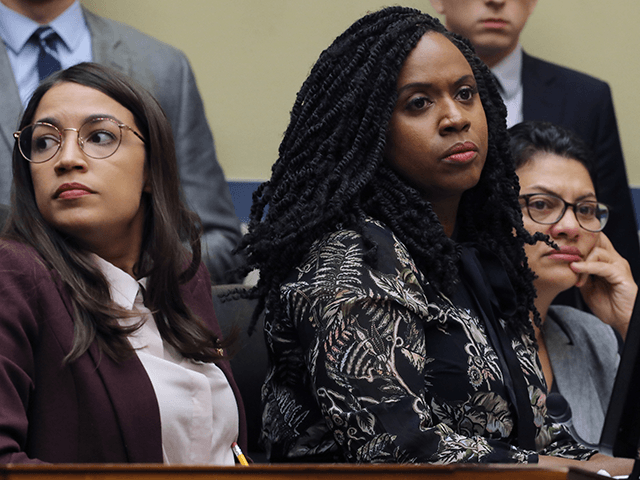A plurality of likely voters disagree with Democrat attempts to nuke the filibuster, which requires 60 votes instead of a simple majority to move most legislation in the Senate, a Rasmussen Reports survey released Tuesday revealed.
Far-left members of the Democrat Party have been applying pressure for lawmakers to eliminate the filibuster. Some of the more left-wing members of the party, including members of the Congressional Progressive Caucus (CPC) and “Squad,” have been in contact with the White House via meetings with Chief of Staff Ron Klain, attempting to advance their agenda items. That includes the elimination of the filibuster.
White House press secretary Jen Psaki claimed last week the filibuster is “allowing for systematic racism in the country,” even though President Biden is on record defending it in 2005.
However, a plurality of likely voters opposes its elimination. The survey asked respondents, “Do you favor or oppose the plan to change the rules and eliminate the filibuster?”
Forty-nine percent said they opposed a plan to eliminate the filibuster, while 41 percent said they favored its removal. Eleven percent said they remained unsure.
Opinions are sharply divided on party lines, as 65 percent of Democrats favor eliminating the filibuster, compared to 24 percent of Republicans and 29 percent of voters outside of either major party who agree. On the flip side, 68 percent of Republicans oppose eliminating the filibuster, and 59 percent of “other” voters agree. Nearly a quarter of Democrats agree as well.
Additionally, a majority of voters, 67 percent, said it is more important to “preserve our constitutional system of checks and balances” than for the government to “operate efficiently.” Even a majority of Democrats, 53 percent, agreed with that sentiment.
The survey, taken March 28-29, among 1,000 likely voters, has a margin of error of +/- 3 percent.

COMMENTS
Please let us know if you're having issues with commenting.